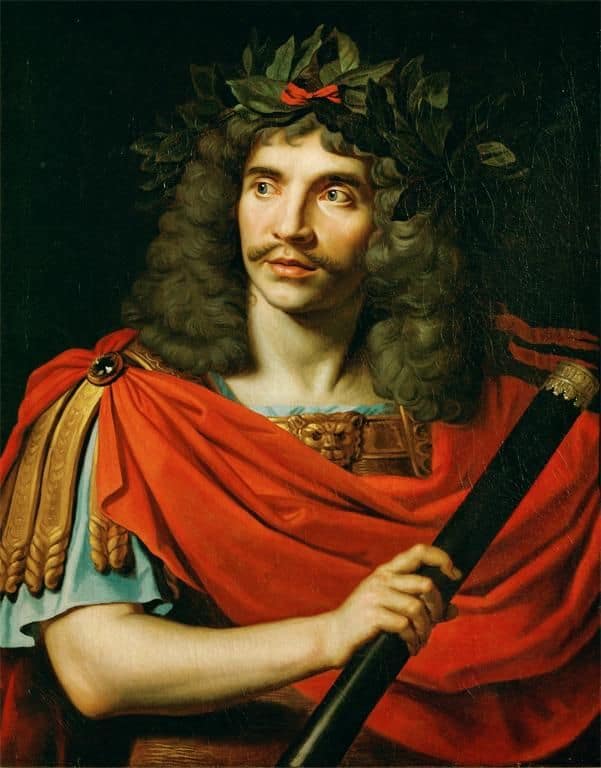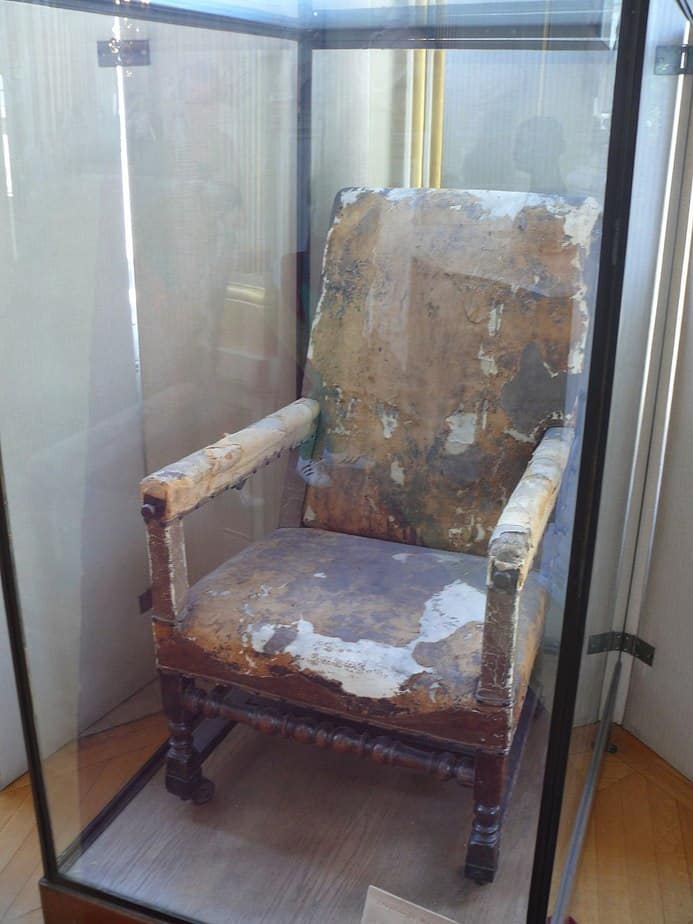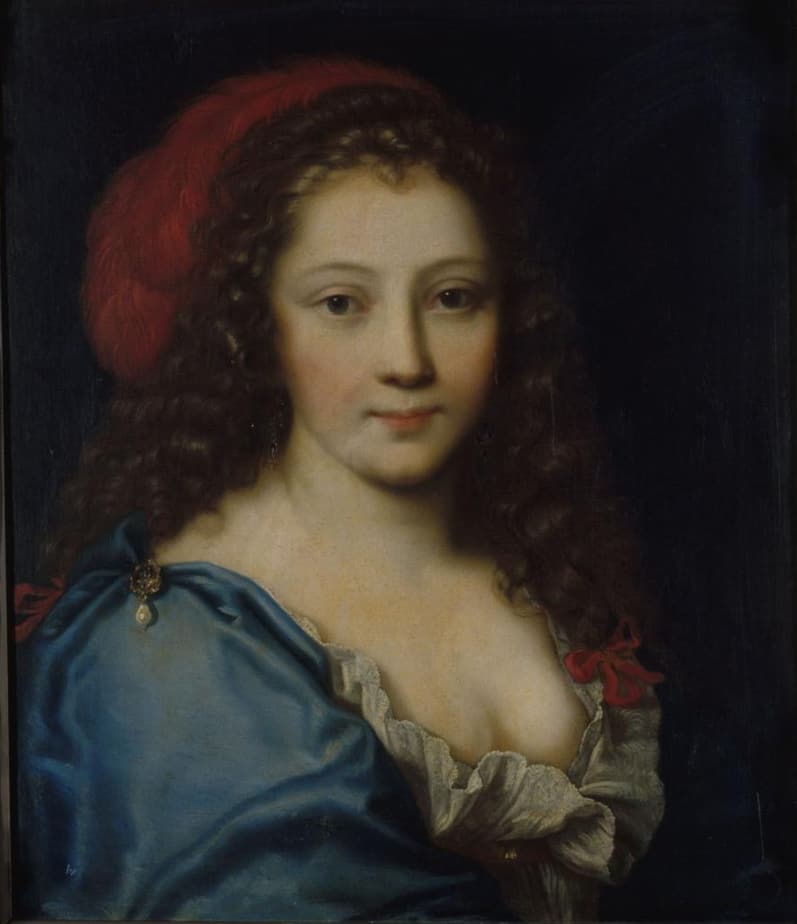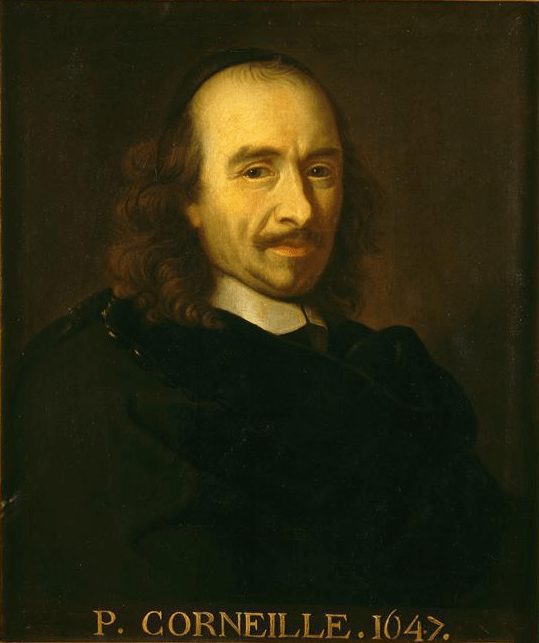8 of the Most Amazing Facts about Molière
Molière. The mere evocation of this name sends us back to the apogee of French classic comedy. Even nowadays, Molière is considered one of the most important playwright who ever lived. His works are still among the most played in the world.
In this article, I will take you through my top anecdotes to introduce to you one of the most famous French author, to whom the theater industry still owes some of its most important masterpieces.
Foreword about Molière
Molière, whose real name was Jean-Baptiste Poquelin, was born in Paris in the 16th Century. He was the son of Jean Poquelin and Marie Cressé. His parents are carpet sellers in the French capital. Little is known about Molière’s childhood. The place and type of studies he would have followed before turning to playwriting still divides historians.
The only sure thing is that Molière decided to leave his parent’s household to join a travelling theater company as soon as he came of age. At this time, it was common for theater troupes to travel from town to town to play their works.
At the beginning of his career, Molière was “only” an actor – that is he played other authors’ works. It is only later that he would start writing his own plays.
1. Moliere and Tragedy
In the 17th century, one genre vastly dominated the theater world: tragedy.
Indeed, at that time, tragedy is almost the only style that is written and played. In this context, Molière started his career by playing tragedy plays, and most notably those by Pierre Corneille, another famous French playwright.
However, Molière’s talents for tragedy were not really praised by his audience, and he ended up facing many failures during his tragedy performances. To understand what Molière probably went through, it is important to note that the way people went to see theater plays at the time was very different than ours.
Indeed, during performances, it was common for the audience to openly respond, by standing up, applauding, booing, and even calling out actors directly. Sometimes, theater halls even invited stands to sell baked apples in the back, so that the audience could buy apples to throw at the actors should the play displease them!
That is what happened to the unfortunate Molière as he tried himself to tragedy… he would soon leave that behind him to find his real talent in comedy.
2. To die on stage
Many fantasies have been written on Molière’s death.
Indeed, according to popular belief, Molière would have died on the stage of his theater as he played Le Malade Imaginaire (The Imaginary Invalid). However, the truth is slightly different.
During the last performance of that play, and as he was portraying a sick man sitting on his chair, Molière started coughing blood. Thinking that the blood was part of the act, the audience started praising the actor’s performance. One man of the theater company, however, realizing the real situation, had the curtain dropped, to evacuate Molière. He was immediately taken home and would take several more hours before passing away.
Centuries after this episode, many still believe in the myth of the Molière’s passing on the stage. The Comédie Française, one of the most important and prestigious theaters in Paris, still exposes the infamous chair on which Molière played his last portrayal of a (not so) Imaginary Invalid…
By the way, the Comédie Française, whose history is intricately linked to Molière’s, is a major theater in the heart of Paris, near the Louvre and the Palais Royal (Royal Palace). You may see it thanks to our Landmarks walking tours, which you can book here!
3. Molière’s trunk
There are many mysteries surrounding Molière’s life and works.
Indeed, apart from a few signatures on administrative paperwork, there are very few handwritten traces of Molière. Upon his death, his wife reportedly decided to sell his trunk containing all of his works.
Legend has it that during the Restauration period (1815-1830) a man asked to be received at the French National Library, saying he had a worthy trunk. As it was late, the guards reportedly refused the man to enter, responding that no one could receive him at this time. The peasant accepted to leave but mentioned that he was bringing a trunk containing Molière’s original works, and that it was a shame for the Library. It was the very last time someone heard of the original plays. The trunk is still to be found, to this day.
4. Molière, the King’s carpet maker
Molière is worldly renowned as a playwright, but it is less known that he had an important function to Louis XIV’s Court – and it has not much to do with plays!
Indeed, if Molière is Louis XIV’s mentee, and rapidly became in charge of entertaining the very culture and theater oriented King, it is lesser known that he entered the almighty King’s Court by accepting a position of Great Carpet-Maker of the King.
The task was then assured by his father, Jean Poquelin. Naturally, Molière took the way paved by this father but his secret goal was clearly to get close to the King and have his plays benefit from this proximity.
In Louis XIV’s France, all plays performed in Paris had to have prior approval of the King in order to be allowed. Therefore, in addition to writing and performing plays, Molière was in charge of making the King’s bed, hanging tapestries in the royal apartments and overseeing the King’s furniture. This little-known role at the Court of the Sun King allowed Molière to have a privileged situation and to have quite a lot of advantages due to his contact with royalty.
5. Molière, a mysterious stage-name
As it is often the case with famous people, Jean-Baptiste Poquelin decided to use a stage-name, now vastly known as “Molière”.
But still today, the real reason of the stage name choice is not known. Even during his lifetime, Molière is said to have always refused to explain why he chose Molière as his pseudonym. Not even his closest friends – his theater company members – were in the loop. A historians’ theory, however, exposes that Molière could have chosen his stage-name in honor of novelist François de Molière d’Essertines, but there is no certainty on this explaination.
6. Censorship and the Tartuffe Affair
The most famous plays by Molière are satirical towards the higher-classes of their time’s society. In his plays, Molière doesn’t hesitate to ridicule affluent members of Louis XIV’s Court, using colorful characters. Molière’s characters rarely spare the close entourage of the King, directly making fun of people who often happen to be in the audience, as the band performs before the King.
It is as the plays are presented to the King that he can activate his Right to Censor, which means the King can demand to withdraw some parts of the incriminated play, or even deny the right to publish and perform it altogether.
In the long history of Molière’s plays censorship, one episode in particular remained famous. It deals with the presentation of one of Molière’s major works: The Tartuffe.
This play is a direct attack towards the Religious classes at the time, especially towards “dévôts” (those turned religious to some extreme extent). The first performance pleases the King very much, but the Religious crowds present that day – as well as the very pious Anne of Austria, mother of the King – are extremely shocked. Under the intense pressure of these people, the king Louis XIV agrees to censor the play.
Molière, wishing to defend his play, found a clever way to turn the situation around and have the play approved: he replaced the very pious “tartuffe” (hypocrite) by a “falsely-pious” man (that is that the main character only pretended to be pious while it was not true, thus not directly implicating the Religious classes).
Although the incident could remain an anecdote, it marked a sharp turn in Molière’s works. From that moment on, the playwright decided to no longer make fun of direct influent targets at the Court – which could have his plays censored – but instead to make fun of general habits and customs of the Court – which then allowed for the Court itself to laugh without having anyone feeling targeted and hurt. Like Tartuffe, Don Juan was another play that had to cope with censorship.
It took Tartuffe five years to be fully granted royal approval…
7. Madeleine and Armande Béjart
When Moliere chose to work with a theater company, he met with a famous family of the industry: the Béjarts. Most members of that family worked in the field as actors.
Molière first met with one woman from the family, Madeleine Béjart. At the beginning of his career, the relationship with her was to last several years. However, slowly, the bond between Molière and Madeleine turned from love into friendship.
Since he was no longer in a relationship, Molière met with many other women until he married another member of the Béjart family, Armande, years later. Armande Béjart was Madeleine’s younger sister. She was nearly twenty years younger than Molière’s former lover, a large age difference which fed a rumor.
Indeed, some saw in Armande not the sister but the daughter of Madeleine. Some people even went as far as wondering whether Armande was not the daughter born from Molière and Madeleine’s relationship! By marrying Armande, Molière would, then, have married his own daughter…
Historians now mostly believe that Armande was indeed Madeleine’s sister and not her daughter. But the rumor lived long enough to reach King Louis XIV’s royal ears.
As he was told that Molière was about to marry his own daughter, the witnesses reported that the King reaction was to answer to the messenger : “Should he marry the daughter, then, I’ll be witness at their wedding!”.
8. The Molière Affair
Of all the anecdotes to tell about Molière, the most significant one is without a doubt the one that came to be called “ the Molière Affair”.
It is a major controversy regarding the paternity of Molière’s works. Started in 1919, this theory by author Pierre Louÿs states that Molière was not the real author of his plays, and that he was only the one who signed them.
According to the theory, Molière’s works would have been really written by Pierre Corneille. Still today, several authors think that this theory might be true. The lack of written traces by the hand of Molière is an important argument of this theory defenders. The argument that Molière, among his many activities would have barely have the time to write is also often given.
According to this theory, Pierre Corneille would have used Molière to write satirical comedy plays which he didn’t want to publish under his own name, being renowned and appreciated as the greatest tragedy playwright. Corneille would have then wished to protect his reputation and avoid endangering his name by assimilating it to the writing of poorly developed and risky satirical comedy.
Many arguments in favor of this theory are given to support the idea that Molière didn’t write his plays, but no evidence of it was ever found, and proven. To this date, this theory is still debated.
It is fun to think that one of the most recognized comedy theater author could be a usurper. But until proven otherwise, let us still consider Jean-Batiste Poquelin to be Molière, the author of some of French most iconic plays…
**
These many anecdotes about Molière’s life participate in feeding the mystery. Although a renowned author worldwide, is known about the playwright’s life and myths and legends around him grew numerous.
Despite these many uncertainties, Molière remains one of the most played authors in the world. He represents such a major part of the French literary culture that the French language is now often described as the “Language of Molière”. Nowadays, the best actors and actresses in France (and the French-language world) still receive a “Molière” Award every year, which is the French equivalent to the Olivier Awards in the UK or the Tony Awards in the US.
Molière is to the French-speaking Theater what Shakespeare is to the English-speaking one.
Planning a trip to Paris ? Get ready !
These are Amazon’s best-selling travel products that you may need for coming to Paris.
Bookstore
- The best travel book : Rick Steves – Paris 2023 – Learn more here
- Fodor’s Paris 2024 – Learn more here
Travel Gear
- Venture Pal Lightweight Backpack – Learn more here
- Samsonite Winfield 2 28″ Luggage – Learn more here
- Swig Savvy’s Stainless Steel Insulated Water Bottle – Learn more here
Check Amazon’s best-seller list for the most popular travel accessories. We sometimes read this list just to find out what new travel products people are buying.















